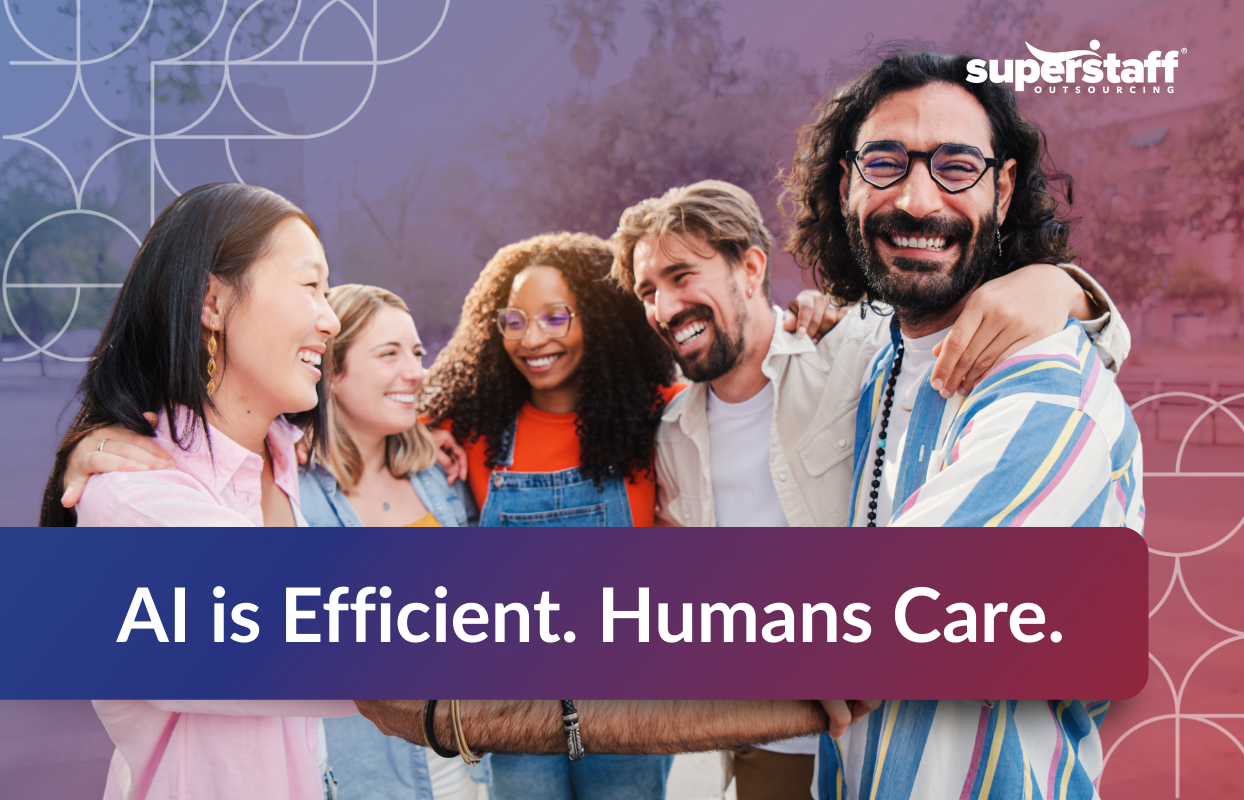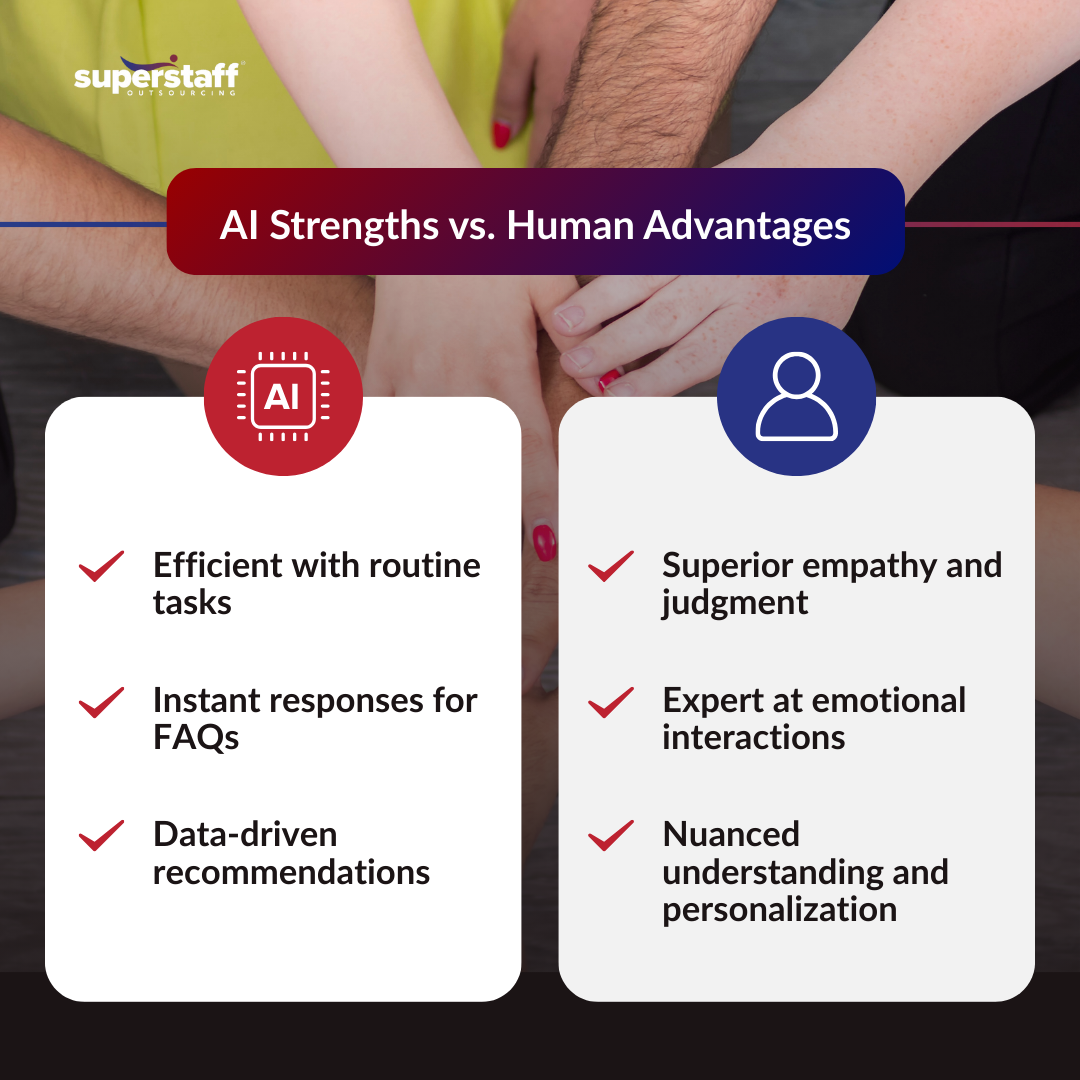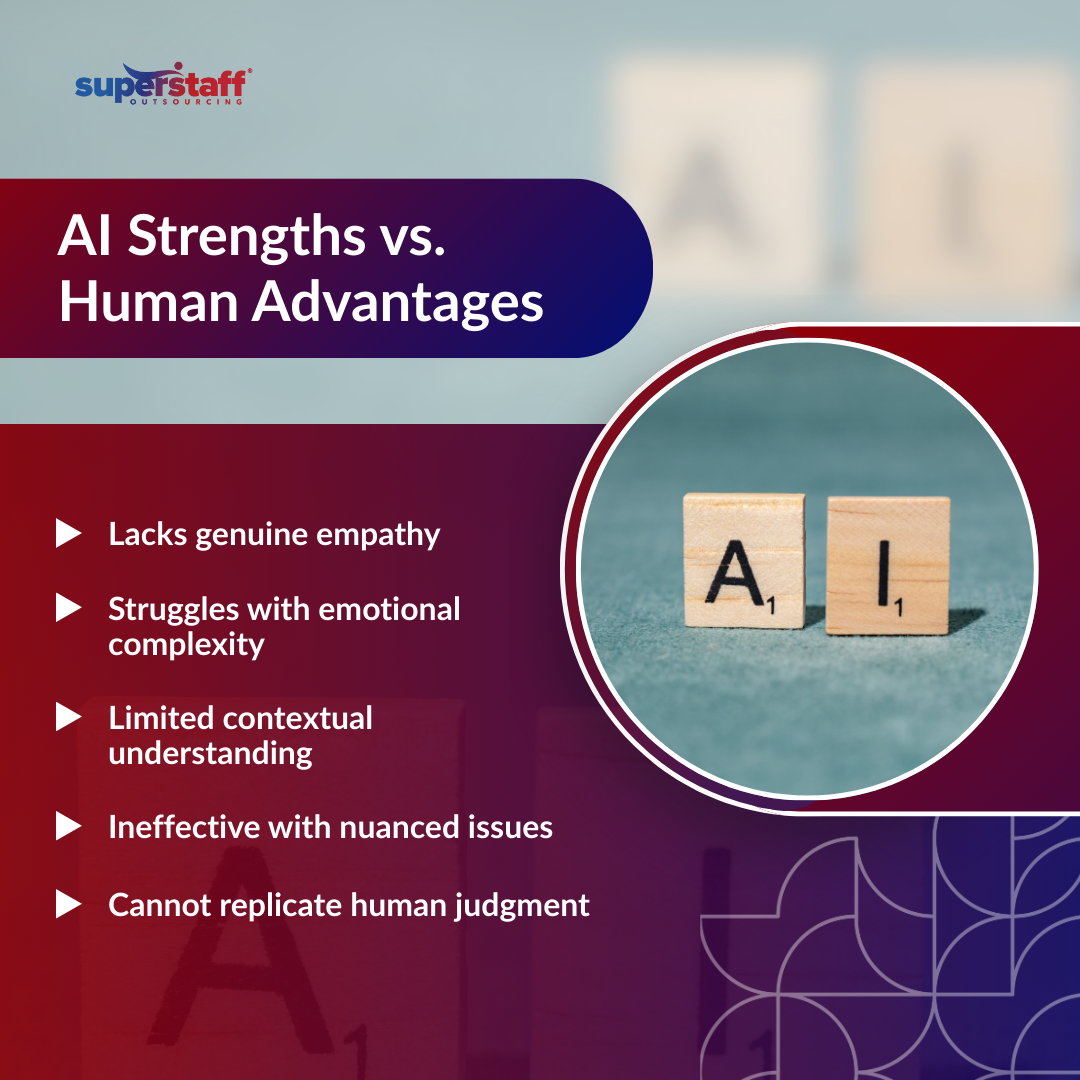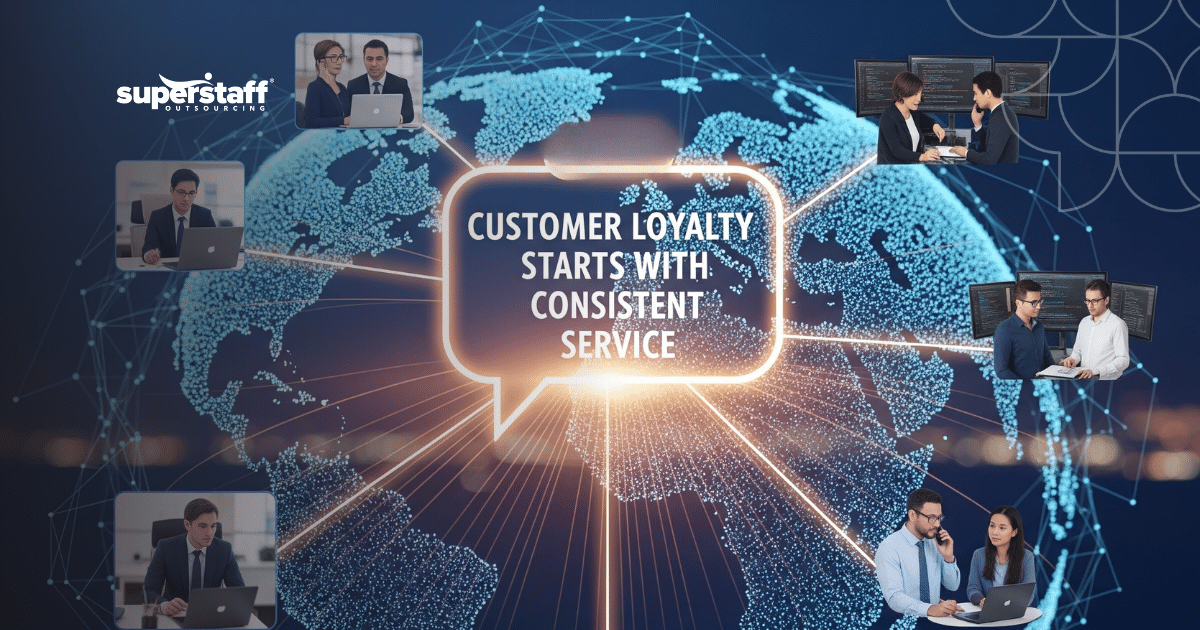
AI is fast, efficient, and always available—but when emotions run high, it often falls short.
Businesses worldwide have turned to AI-powered solutions to streamline customer service operations and scale quickly. However, despite these impressive advances, your customers still crave genuine understanding, especially during complex, high-stakes, or emotionally charged interactions.
This blog explores the AI limitations in customer service and why human support remains essential in creating meaningful, lasting customer relationships. Readers like you will clearly see the boundaries of AI in CX and the irreplaceable value of trained human agents, particularly when empathy, nuance, and real-time judgment come into play.
AI Is Powerful—But Not All-Purpose

Artificial intelligence has revolutionized many aspects of customer support. It swiftly handles routine tasks, resolves repetitive queries, and maintains a consistent tone in every interaction. Businesses leverage AI-powered chatbots precisely because of their reliability and efficiency in straightforward tasks.
Imagine a customer who simply wants to know the status of their online order. AI chatbots can handle such straightforward inquiries in seconds, providing accurate and instantaneous replies. However, the scenario shifts dramatically when the question becomes nuanced, such as discussing compensation for a damaged high-value order.
Suddenly, AI limitations in customer service become glaringly apparent. The nuances required to handle this type of request effectively—a situation packed with context, customer history, and subtle emotional cues—are exactly where AI often falters.
Simple inquiries can indeed be managed by AI. Still, complex situations expose fundamental AI limitations in customer service: AI lacks emotional depth and contextual reasoning. Therefore, despite its strengths, AI alone cannot replace the human ability to connect on a deeper, emotional level.
Complex Issues Demand Human Judgment
When customer service inquiries become intricate, human agents step in where AI cannot. Complex requests inherently require flexible thinking, ethical judgment, and profound context comprehension—capabilities that current AI models struggle to master.
Consider a scenario that decision-makers regularly face: a long-standing customer calls in frustration, demanding a refund after experiencing continuous disruptions with their premium subscription. The issue is layered, rooted in emotions, expectations, and financial considerations. This type of scenario illustrates vividly the limitations of AI in handling complex customer service issues.
Human agents excel precisely because they grasp subtleties. They can listen actively, sense urgency through voice tone, and interpret emotional cues to craft personalized solutions. AI limitations in customer service become especially evident when algorithms fail to accurately interpret human emotion and urgency, leaving human agents indispensable for addressing these critical moments.
Beyond mere problem-solving, the emotional intelligence demonstrated by human agents becomes a trust-building factor, significantly enhancing brand loyalty.
Emotional Intelligence Can’t Be Coded
Empathy, a quintessential human trait, simply cannot be coded. Customers reaching out during moments of stress, frustration, or vulnerability don’t merely seek transactional efficiency—they seek genuine understanding and reassurance. AI might mimic some conversational patterns, but cannot authentically replicate emotional empathy.

Picture a customer reaching out after discovering suspicious charges on their account, panic evident in their voice. They need more than a scripted response; they require authentic reassurance, active listening, validation of their emotions, and immediate support. Even the most advanced chatbots falter when faced with such emotional intensity, highlighting a crucial boundary in the ongoing AI vs human customer support debate.
Human empathy isn’t programmable—it’s instinctive and authentic. According to McKinsey, nearly 50 percent of people ranked empathy-driven workload management as key to their positive perception of their organization during the pandemic. Emotional validation, delivered genuinely by human agents, significantly influences customer satisfaction, turning tense situations into opportunities for deepened customer loyalty.
Acknowledging AI limitations in customer service isn’t a critique of the technology; rather, it emphasizes the vital importance of keeping humans at the center of customer interactions, especially when empathy and connection are paramount.
The Rise of the Human + AI Hybrid Model
As more companies become aware of the specific strengths and weaknesses of AI, a new approach emerges: the hybrid customer service model.
In these innovative structures, AI efficiently manages routine inquiries, allowing human agents to focus on complex or emotionally charged interactions. This combination is already proving effective. According to research by Ernst & Young, an impressive 97% of senior executives investing in AI have seen favorable returns, highlighting AI’s substantial business impact.
Imagine an AI chatbot efficiently guiding a customer through basic troubleshooting steps for their home internet setup. Once the customer signals frustration or the issue escalates in complexity, the interaction seamlessly transitions to a trained human agent.
This hybrid model increases productivity, improves customer satisfaction, and ultimately provides the personalization so critical to modern CX, clearly demonstrating the power of combining automated vs live customer support.
Human agents supported by AI systems deliver faster, more tailored solutions. AI quickly supplies human agents with relevant background information and context, equipping them to resolve issues with greater efficiency and accuracy. In other words, AI doesn’t replace humans—it empowers them, creating the ideal balance of automation and personalization.
Why Human-Led Outsourced Teams Are the Competitive Advantage
Outsourced human customer experience teams remain a strategic advantage for businesses committed to superior CX. By leveraging AI as a supporting technology rather than a replacement, human-led outsourced teams can deliver both scale and genuine empathy, particularly when staffed by culturally aligned, multilingual agents.
As an example, imagine a mid-market tech company expanding globally. It requires round-the-clock customer service support, but quickly realizes AI limitations in customer service prevent it from handling complex and culturally nuanced customer interactions across diverse global markets. By partnering with an offshore team, the company can seamlessly scale its customer support operations.
Human agents in offshore call centers can manage emotionally charged situations effectively, offering warmth and professional problem-solving unmatched by AI. Filipino call center agents, for instance, are renowned for their emotional intelligence, cultural adaptability, and professionalism. They provide 24/7 service, catering to businesses’ global customer bases while overcoming the key limitations of AI.
By choosing an outsourced team blending technological agility with the irreplaceable human touch, businesses can effectively address evolving customer expectations. Today’s consumers demand more than speedy replies—they expect genuine interactions marked by understanding, empathy, and meaningful connections.
AI Limitations in Customer Service
AI may have fundamentally transformed customer service operations, but the human touch remains essential to delivering meaningful, emotionally resonant support. While AI efficiently handles routine tasks and predictable inquiries, it inevitably falls short in scenarios demanding empathy, context, and nuanced judgment.
AI limitations in customer service clearly highlight that human agents uniquely excel in interpreting emotional cues, managing complexity, and building customer loyalty through genuine connection.
Blended customer service models—combining AI efficiency with the indispensable human component—represent the future of customer experience excellence. To stand apart in today’s crowded marketplace, businesses must prioritize genuine human interactions supported by smart AI technology.
As you navigate these critical decisions for your organization, partner with a team that blends cutting-edge technology with authentic human care. Let SuperStaff’s expert CX professionals provide the empathetic, culturally aligned support your customers deserve.
At SuperStaff, we recognize precisely where AI ends and humanity begins—providing your customers with memorable interactions that build lasting trust. Choose SuperStaff to experience the ideal blend of technological innovation and genuine human connection. Let’s build meaningful, enduring relationships together!






